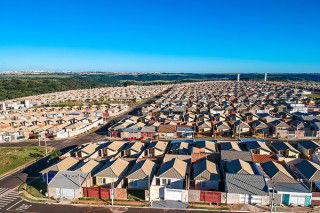Bangladesh's cement industry seeks relief from the government on the sudden imposition of supplementary duty on raw materials, along with nonadjustable Advance Income Tax (AIT), fuel shortages, high transportation costs, and increasing currency value. President of the Bangladesh Cement Manufacturers Association (BCMA), Alamgir Kabir, gave a current picture of the country's cement sector at a press conference in Dhaka.
According to local media sources, the BCMA raised concerns over the situation, saying that only proper government steps will solve these issues in the cement sector, adding that otherwise it might have an adverse effect on the cement price, which may hamper the country's infrastructural development.
The president said that cement production in the country is carried out by 35 local and foreign enterprises, with an annual effective production capacity of over 79Mt compared to an annual demand of roughly 39Mt. Due to a production capacity almost two times higher than demand, there is big competition in the market, so cement is being sold at the lowest minimum price to survive. As a result, cement manufacturing companies are experiencing financial hardship.
The main raw materials for cement production are imported from abroad. The sector is suffering greatly due to the sudden imposition of additional duty on limestone. Limestone has been levied a one-time supplementary duty of 30 per cent and an additional AIT of two per cent, along with an existing AIT of three per cent. There is already a 15 per cent value-added tax (VAT) and a three per cent advance tax on limestone imports.
Alamgir Kabir said, "As a result of this additional taxation, limestone is now being released or assessed by paying around 67 per cent duty instead of around 27 per cent on the import value in the recent past. We hope the appropriate government authorities will consider the subject and levy a maximum of 0.50 per cent of advance income tax both at the import and sales stages and exempt them from the ultimate tax payment."
The price of cement is rising due to the difficulty in importing raw materials on the back of the dollar crisis. As a result, the industry is facing huge hurdles even while opening new LCs. Production is disrupted due to load shedding. At the same time, the required electricity cannot be generated due to gas shortages. The cost of cement transportation locally is rising following higher gasoline prices. Additionally, the business needs more financial incentives for exports of cement.
